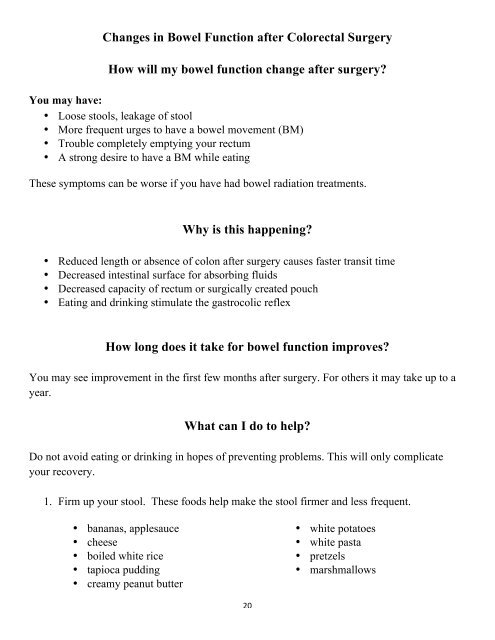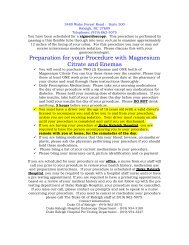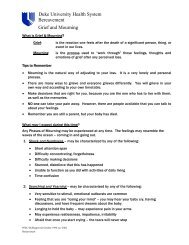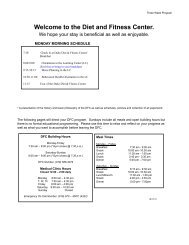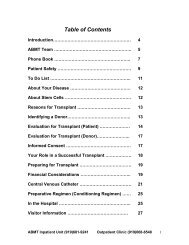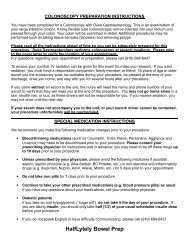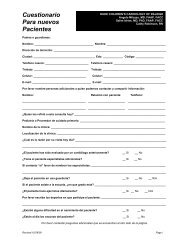Colorectal Surgery - Duke University Medical Center
Colorectal Surgery - Duke University Medical Center
Colorectal Surgery - Duke University Medical Center
You also want an ePaper? Increase the reach of your titles
YUMPU automatically turns print PDFs into web optimized ePapers that Google loves.
Changes in Bowel Function after <strong>Colorectal</strong> <strong>Surgery</strong><br />
How will my bowel function change after surgery<br />
You may have:<br />
• Loose stools, leakage of stool<br />
• More frequent urges to have a bowel movement (BM)<br />
• Trouble completely emptying your rectum<br />
• A strong desire to have a BM while eating<br />
These symptoms can be worse if you have had bowel radiation treatments.<br />
Why is this happening<br />
• Reduced length or absence of colon after surgery causes faster transit time<br />
• Decreased intestinal surface for absorbing fluids<br />
• Decreased capacity of rectum or surgically created pouch<br />
• Eating and drinking stimulate the gastrocolic reflex<br />
How long does it take for bowel function improves<br />
You may see improvement in the first few months after surgery. For others it may take up to a<br />
year.<br />
What can I do to help<br />
Do not avoid eating or drinking in hopes of preventing problems. This will only complicate<br />
your recovery.<br />
1. Firm up your stool. These foods help make the stool firmer and less frequent.<br />
• bananas, applesauce<br />
• cheese<br />
• boiled white rice<br />
• tapioca pudding<br />
• creamy peanut butter<br />
• white potatoes<br />
• white pasta<br />
• pretzels<br />
• marshmallows<br />
20


